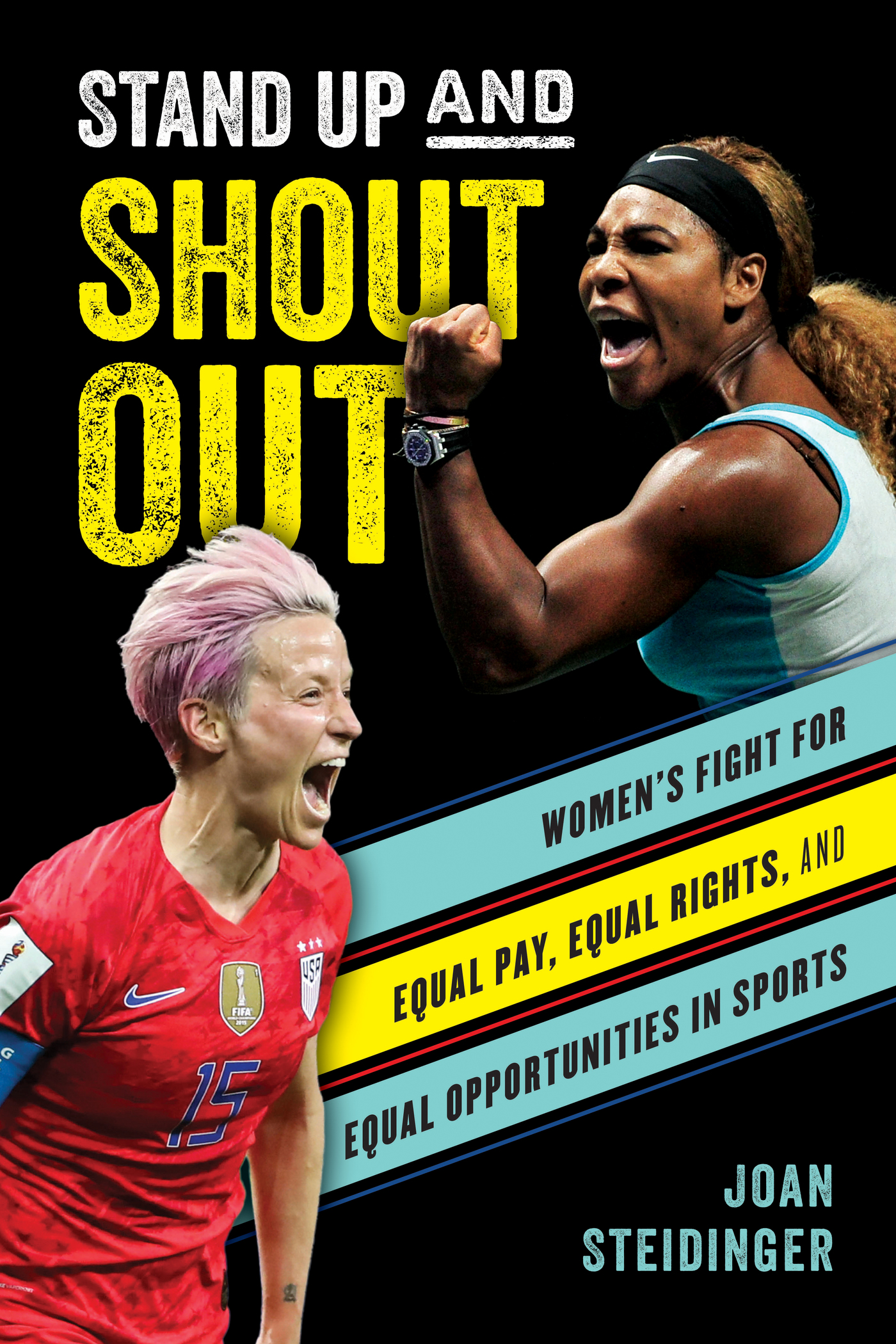Stand Up and Shout Out
Womens Fight for Equal Pay,
Equal Rights, and Equal
Opportunities in Sports
Joan Steidinger
ROWMAN & LITTLEFIELD
Lanham Boulder New York London
Published by Rowman & Littlefield
An imprint of The Rowman & Littlefield Publishing Group, Inc.
4501 Forbes Boulevard, Suite 200, Lanham, Maryland 20706
www.rowman.com
6 Tinworth Street, London SE11 5AL
Copyright 2020 by The Rowman & Littlefield Publishing Group, Inc.
All rights reserved. No part of this book may be reproduced in any form or by any electronic or mechanical means, including information storage and retrieval systems, without written permission from the publisher, except by a reviewer who may quote passages in a review.
British Library Cataloguing in Publication Information Available
Library of Congress Control Number: 2019038984
 TM The paper used in this publication meets the minimum requirements of American National Standard for Information Sciences Permanence of Paper for Printed Library Materials, ANSI/NISO Z39.48-1992.
TM The paper used in this publication meets the minimum requirements of American National Standard for Information Sciences Permanence of Paper for Printed Library Materials, ANSI/NISO Z39.48-1992.
To the grandmother of sports psychology
Dr. Carole Oglesby
guide and mentor to
thousands of girls and women in sport,
sharing her hand with black and white,
for her kind and generous heart,
willingness to friend and befriend those others
neglected whose backs were turned on,
to recognize beyond our borders the need for outreach to our global neighbors,
our gratefulness knows no bounds.
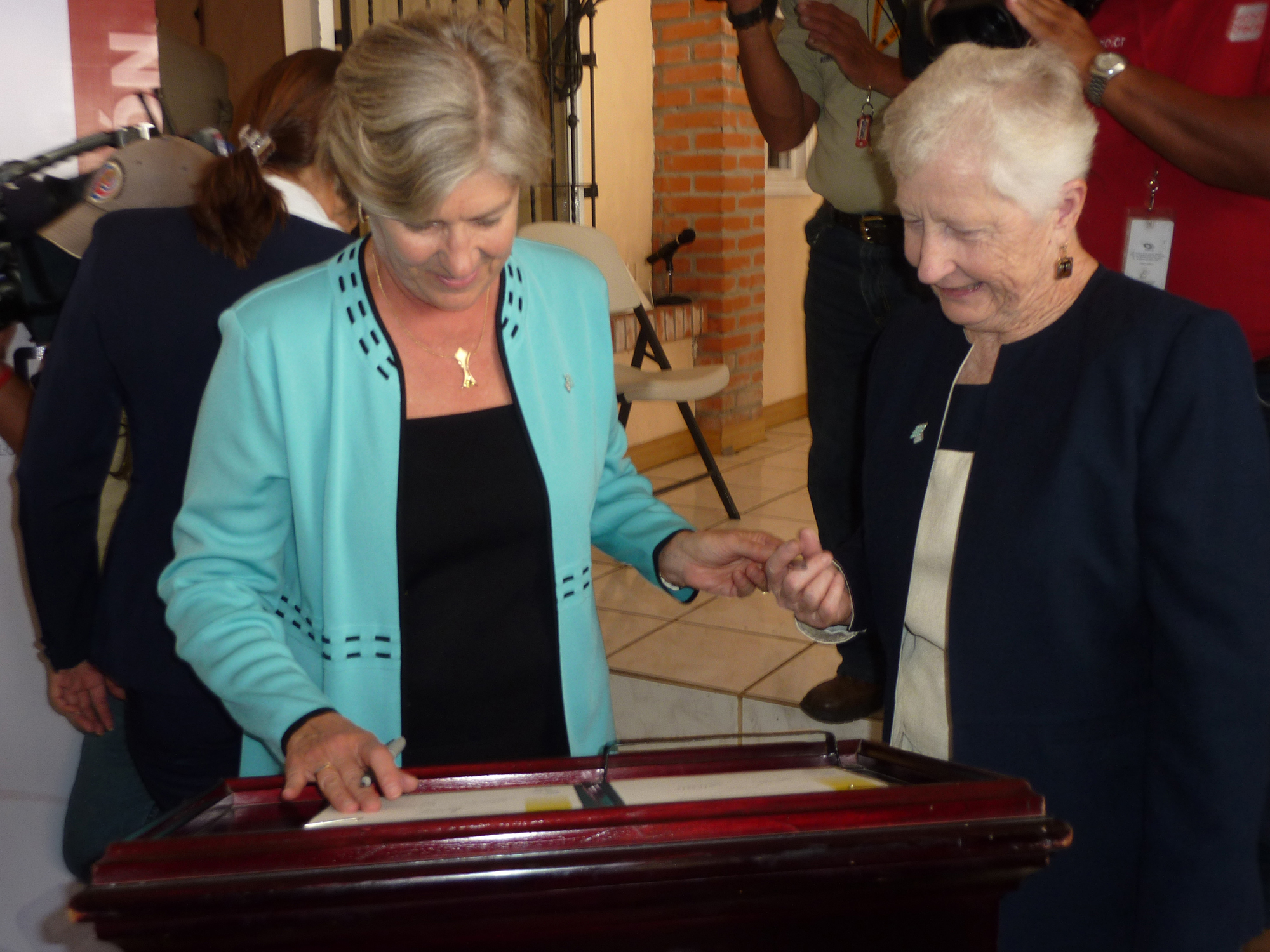
Dr. Carole Oglesby and Dr. Chris Sheldon. Dr. Carole Oglesby
Acknowledgments
Girls playing sports is not about winning gold medals. Its about self-esteem, learning to compete, and learning how hard you have to work in order to achieve your goals.
Jackie Joyner-Kersee, former Olympian, heptathlon and long jump, and winner of three gold, one silver, and two bronze medals in four different Olympics
Once again, the phrase it took a village applies to the development of this book. Because of the assistance I received from leaders in girls and womens sport in the United States and throughout the world, this book grew in depth, scope, and excitement. The collaboration, cooperation, bonding, generosity, and openness of the interviewees was greatly appreciated in helping bring this book to fruition. Thank you for your insight, wisdom, and support. Thank you from the bottom of my heart to the following individuals:
John Eric Poulson, my intelligent, kind, generous, and thoughtful husband, who puts up with my mess and ordering dinner out when Im in the midst of deadlines.
Susanna Solomon, my writing coconspirator, who was encouraging and supportive as we enjoyed our Wednesday night outings at Jasons, making trouble during happy hour and enjoying a break from writing the book.
Dr. Mary Lamia, my colleague and friend who has written five books herself, who served as a mentor, guide, friend, and hiking buddy.
Constance Hale, who offered sage advice about which direction to take with this book.
Dr. Janice De Covnick, who actually asked me, prior to this book, if she could be a reader of my next book before Id even decided on a topic, for her undying love and support.
Peter Beren, my agent, for believing in me long before he was my agent.
Cheryl Krauter, my trusted writing group buddy, for sharing an interest in my writing. The feeling is mutual.
Dr. Carole Oglesby, who opened doors for me to begin the journey of creating this book. It is dedicated to her.
Dr. Becky Clark, who supported my first book and planted the seed for this one.
Nancy Hogshead-Makar, who generously introduced me to a wide range of women leaders in sport, providing invaluable information about the #MeToo movement and helping develop the richness of this book.
Dr. Alpha Alexander, who with her invaluable knowledge and contacts helped me better understand the issues facing African American females in sport.
Brooke Warner, who is an excellent book coach whose guidance has taught me how to organize and think more clearly.
Krissa Lagos, my editor, whose feedback on and guidance in my writing has made me a better writer.
Thomas Newkirk, an attorney, who gave me a more in-depth view of how the law relates to gender discrimination.
Charlene Bayles, for our runs and discussions, which made me think about the politics of sport work.
Cade Netscher, head of Neurun, who believes in me and my work, and showed his support for this project
Frances Steidinger, my mother, who would be proud of me had she lived to see the publication of this book.
Dean Steidinger, my father, who taught me to reach for the stars in sports.
A huge thanks to my readers: Dr. Janice De Covnick, Charlene Bayles, Holly Harris, and Mary Foston English.
T. Coles, Famous Olympic quotes to get inspired about the games, Huffington Post, February 7, 2014, https://www.huffingtonpost.ca/2014/02/07/famous-olympic-quotes_n_4745472.html.
Introduction
Sports build good habits, confidence, and discipline. They make players into community leaders and teach them how to strive for a goal, handle mistakes, and cherish growth opportunities.
Julie Foudy, World Cup soccer winner and
American sports leader
Today, women have greater opportunities to participate in sport than ever before, particularly due to Title IX. As a pre-Title IX athlete, I experienced huge limitations and watched them being placed on women in sports throughout the years. This is reflective of the challenge to move toward further equality. My lifelong love of all sport has driven me throughout the writing of this book on womens inequality. Thanks to the hard work of Billie Jean King, the Womens Sports Foundation, and the Black Women in Sport Foundation, among numerous other individuals and groups, girls and womens participation in sport has increased exponentially. Despite this growth after Title IX, women have struggled more than ever to hold leadership positions, become coaches of both girls and boys teams, receive equal pay, and even receive adequate coverage in the media. Women coaching girls and women has fallen to 41.8 percent from the 90 percent it was prior to Title IX, and media coverage of womens sports is a pathetic 4 percent. As the godmother of sports psychology, Carole Oglesby spoke at the Social Justice in Exercise and Sport Psychology conference in March 2019, stating, Sport is more gender antagonistic than most job climates.
When I ran my first marathon in San Francisco in 1987, I observed every size and shape of runner. This process of observing the different types of athletes helped widen my scope about girls and womens issues in sport. I wrote an article for the website Disruptive Women in Health that explored the topic of appearance versus performance, a process that further enlightened me about the modern worlds narrow view of what a female athlete should look like.
Then, during the Rio Olympics in 2016, I watched the media repeatedly invalidate and ignore the stories of numerous female U.S. Olympians who received medals. One tweet went so far as to identify a female athlete who received a bronze medal only as the wife of a NFL player. Much of the media coverage during these Olympics attributed female athletes receiving medals to the men in their lives rather than their own hard work, training, and determination. In the 2018 Pyeongchang Olympics, the U.S. women outperformed the men, receiving more gold medals. Both their strengths and capabilities emerged more than ever before. For example, in a great show of determination and fortitude, Olympic cross-country skiers Jessie Diggins and Kikkan Randall made Olympic history by winning the first cross-country medal by U.S. women and the first cross-country medal in 42 years for the United States. Watching these inspirational performances motivated me to write about this topic of inequality for women in sport. Women athletes are stepping forward with their mettle, courage, and determination.
Next page
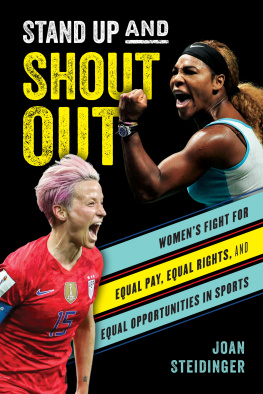
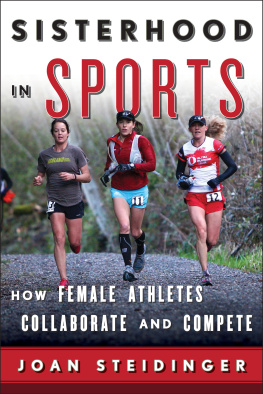

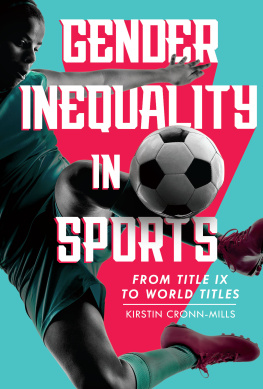
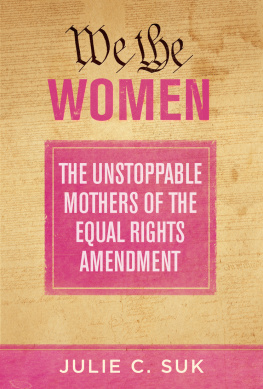
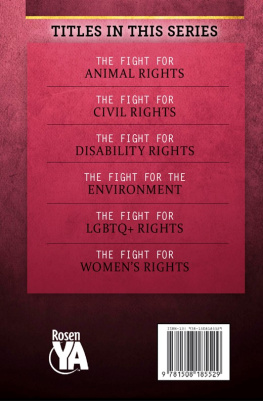
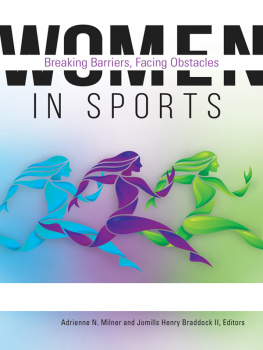
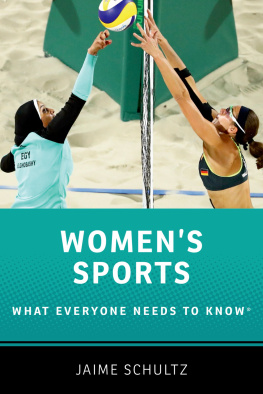
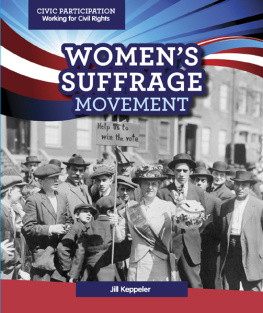
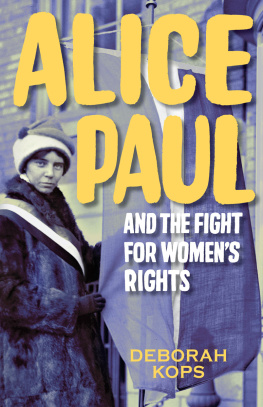
 TM The paper used in this publication meets the minimum requirements of American National Standard for Information Sciences Permanence of Paper for Printed Library Materials, ANSI/NISO Z39.48-1992.
TM The paper used in this publication meets the minimum requirements of American National Standard for Information Sciences Permanence of Paper for Printed Library Materials, ANSI/NISO Z39.48-1992.
